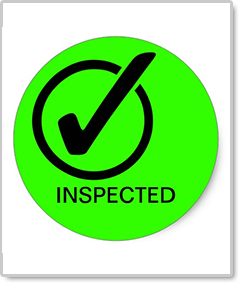Pre-Inspections: The Pro's and Con's

As a real estate agent, should you advise your sellers to get a pre-inspection? This article discusses the advantages and disadvantages for the seller.
A pre-inspection of a home involves having a professional home inspector conduct a home inspection PRIOR TO the selling receiving an offer from a buyer. Typically this inspection would be a whole house inspection, but depending on the home and state of residency, preinspection could involve other types of inspections, such as: pest & dry rot inspections; roof inspections; foundation inspections; well & septic inspections; and pool inspections.
The advantages of doing a pre-inspection include:
-
Reduces major surprises: One of the biggest advantages of doing a pre-inspection is that if there are any major problems with the home, that these can be found before a potential buyer gets involved, rather than having them come up unexpectedly during the transaction.
-
Gives time to repair problems: Whether the problems found are big or small, knowing about them early gives time for getting the repairs done. This means having more time to research contractors and evaluate bids, which can save the seller money and potentially get more reliable work done. But more importantly, it moves the timeline for repairs away from when the buyer is involved.
-
Improves the likelihood of passing the buyer's inspection: Since an inspector has already inspected the house, hopefully all of the issues will have been found prior to the buyer's inspection.
-
Allows the seller the option of sharing the inspector's report with the buyer: Sharing the pre-inspection report can help give potential buyers some additional peace of mind during the early stages of the buying process.
On the other hand, there are some downsides to be aware of for doing a pre-inspection:
-
cost: Of course doing a pre-inspection is going to be an added cost to the seller.
-
no guarantee that the buyer's inspection will have the same opinion: And there is always the chance the a second set of eyes doing a home inspection may find issues that the pre-inspection did not identify.
-
pre-inspection could obligate the seller to disclose problems that are found: And depending on what is found and in what state the home is located, the seller may be obligated to disclose problems that are found during the pre-inspection.
Each seller's situation will be unique, and ultimately it will be their decision whether or not to do a pre-inspection. But hopefully the discussion of the above pro's and con's will help you advise your sellers.